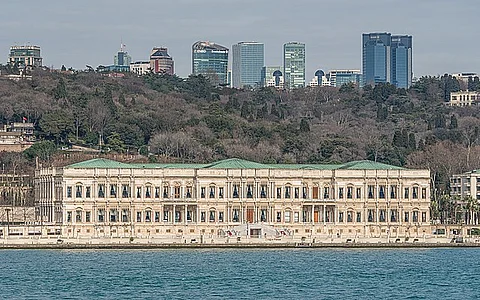

Russian and Ukrainian delegations are scheduled to meet in Istanbul on Monday, June 2, 2025, for a second round of peace talks since 2022, following Ukraine’s unprecedented drone attacks on Russian soil.
The talks come as both sides remain deeply divided on ending the three-year war, with intensified military actions raising the stakes.
On Sunday, Ukraine launched one of its most ambitious attacks, targeting Russian airbases in five regions, including nuclear-capable bombers in Siberia, according to Russia’s Defence Ministry.
Several fighter jets caught fire at airbases in Murmansk and Irkutsk, though Russia reported no casualties. Ukrainian President Volodymyr Zelenskyy praised the operation as “absolutely brilliant,” stating, “Ukraine is defending itself, and rightly so – we are doing everything to make Russia feel the need to end this war.”
Additionally, explosions caused two bridges in Russia to collapse, derailing two trains.
Meanwhile, Russia launched 472 drones at Ukraine, the highest nightly total of the war, and a missile attack on a Ukrainian military base in Dnipro killed at least 12 soldiers and wounded over 60.
The Istanbul talks follow a May 16 meeting that resulted in the war’s largest prisoner swap but no ceasefire progress.
Russian negotiator Vladimir Medinsky, invoking Napoleon Bonaparte, said, “war and negotiations should always be conducted at the same time.”
Ukraine’s delegation, led by Defence Minister Rustem Umerov, includes deputy foreign ministers and military officials.
A Ukrainian source stated, “The Ukrainian delegation came to Istanbul with a clear agenda and readiness to take big steps toward peace,” but expressed hope that Russia would “not just repeat the same previous ultimatums.”
Russia controls roughly 113,100 square kilometers of Ukraine, equivalent to Ohio’s size.
President Vladimir Putin demands Ukraine abandon NATO ambitions and withdraw from four regions.
Ukraine’s draft proposes no military restrictions post-peace, no recognition of Russian sovereignty over occupied territories, and reparations, with the front line as the territorial negotiation starting point.
U.S. envoy Keith Kellogg noted involvement from the U.S., Britain, France, and Germany, though the U.S. role remains unclear.
President Donald Trump has urged peace but warned of withdrawing U.S. support if no deal is reached.